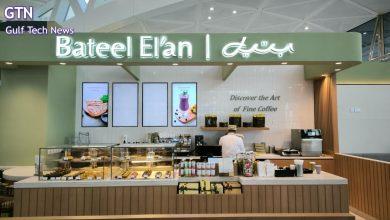Saudi Retail Banking Revenues Expected to Grow at a Compounded Annual Rate of 11.4% between 2021 – 2026 with ESG Playing a Big Role in the Transformation

Recovery in oil prices combined with increased interest rates are key contributors to a post-pandemic revival, boosting economic growth and consumer spending
Increased spending on ESG and sustainability is the next frontier for competitive advantage in the sector
Riyadh – Gulftech:
The Kingdom of Saudi Arabia’s (KSA) retail banking revenues are expected to grow at a Compound Annual Growth Rate (CAGR) of 11.4% between 2021 to 2026, a rise from 8.7% from 2016 to 2021, while GCC economies (UAE, Saudi Arabia, Kuwait, Bahrain, and Qatar) expecting to see an 8.8% CAGR within the same period to 2026, according to a new report by Boston Consulting Group (BCG).
The report, titled Global Retail Banking 2022: Sense and Sustainability, also reveals that one-quarter of retail banks surveyed globally report that ESG is a primary focus area for their digital transformation, and another 38% say that ESG is a key criterion in selecting and prioritizing digital transformation initiatives. In addition to ESG, through the five years from 2021 to 2026, payments, mortgages, and deposit products are likely to drive banking revenue growth in the GCC retail banking sector. An accelerated pace of digital payments and e-commerce adoption in the wake of COVID-19 will further benefit payment revenue growth.
“In today’s evolving marketplace, engaging with customers and other stakeholders on ESG issues is a matter of rising urgency. ESG assessments must now be expanded to include the changing needs and preferences of stakeholders. As of now, banks are in the best position to execute that outreach through the promotion of sustainable customer behaviors, resulting in greater contributions towards the Kingdom’s Vision 2030.” said Bhavya Kumar, Managing Director & Partner, BCG. “Through ESG-related products, banks can shape the sector and the country’s leap forward.”
Key Consumer Sentiments and Insights
Increased trust in their bank during the COVID crisis than at the start of the pandemic in 2020. Customers want their banks to feel like a “good friend” that they can turn to for honest advice and a “school” where they can obtain financial guidance.
When it comes to keeping personal data secure, customers trust their banks even more than their doctors. Furthermore, customers are willing to disclose more data to their banks if they value a new service or feature.
Banks have many opportunities to innovate sustainable practices and products along the customer lifecycle and to practice good business in the process. Banks can also use the daily banking relationship as well as their personalized engagement capabilities to support customers in environmentally friendly and ethical living.
“Saudi Arabia has deployed hugely ambitious projects under Vision 2030. Acting as facilitators, instigators and key actors of change for the nation will be retail banks,” said Martin Blechta, Principal, BCG. “ESG in banking is very much a credit portfolio review and there is a significant first mover’s advantage – whereby, banks that start this activity ahead of competitors have more choice to prioritize the right clients. As they consider a redirected future, retail banks must adapt to changing consumer preferences and utilize digital tools and technology to craft solutions that will fulfill customers’ needs in new and sustainable ways while advancing the overall ESG agenda.”




